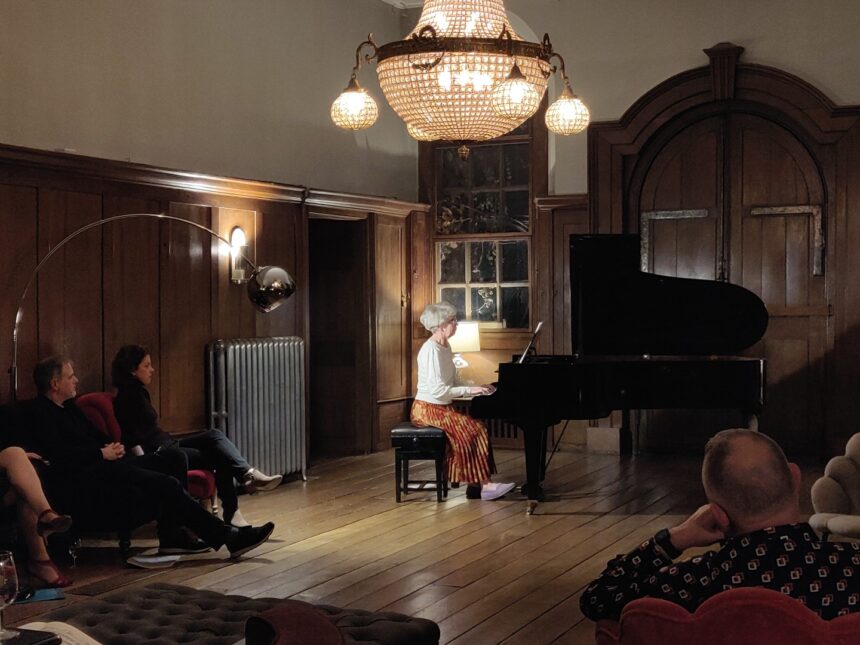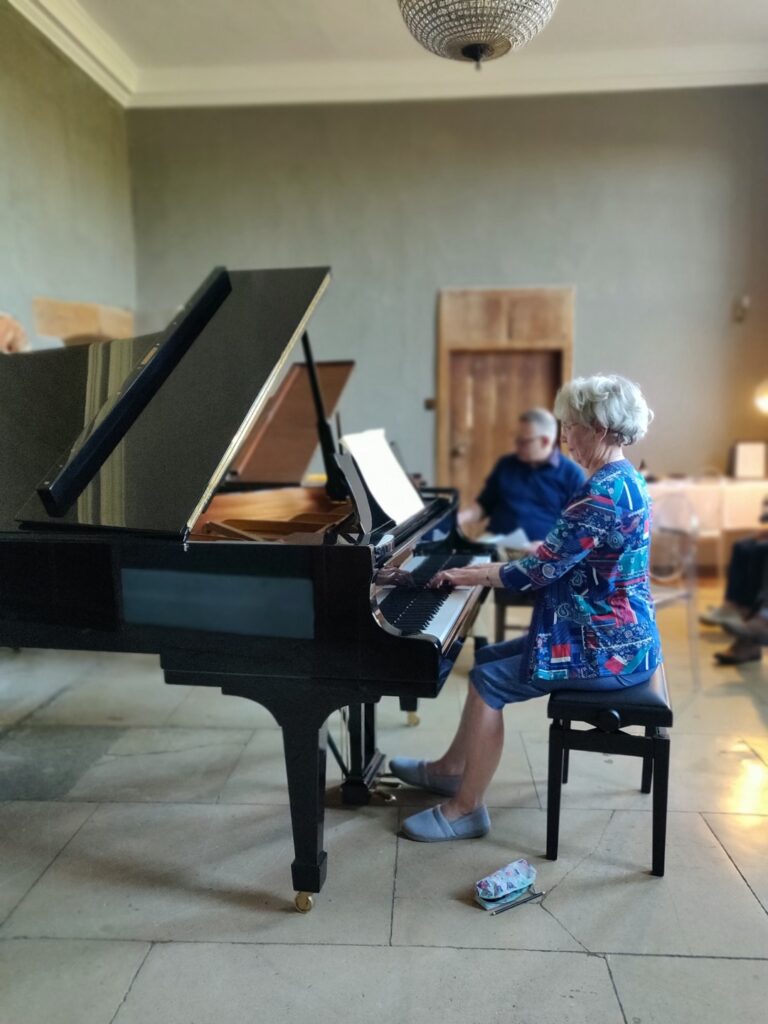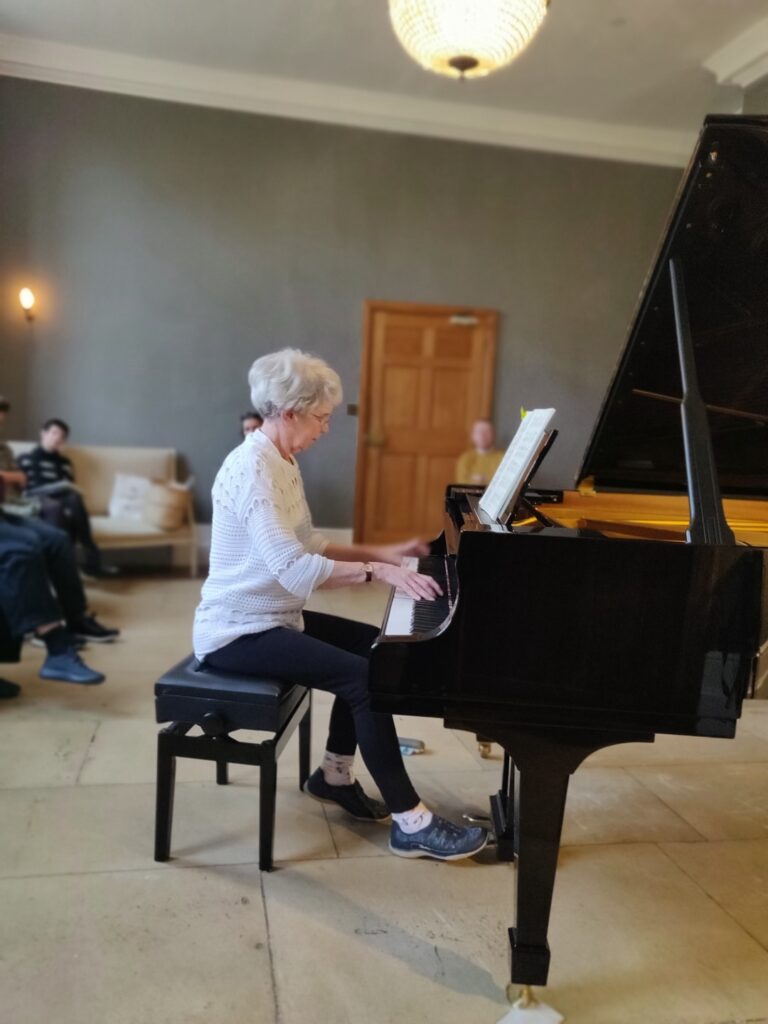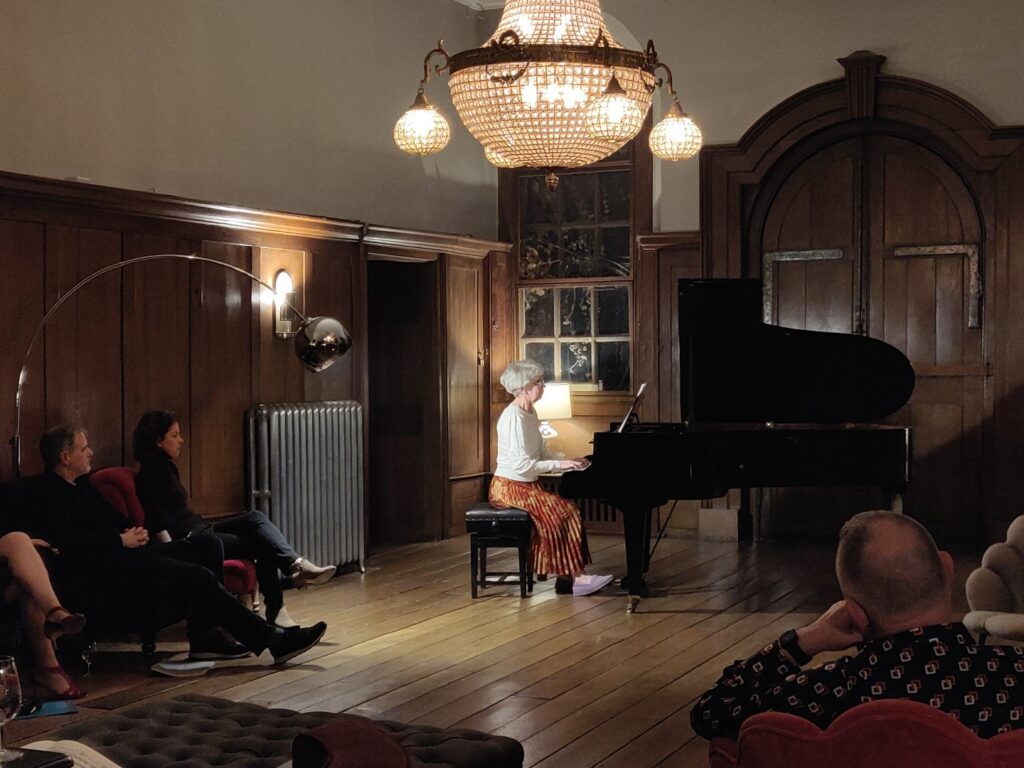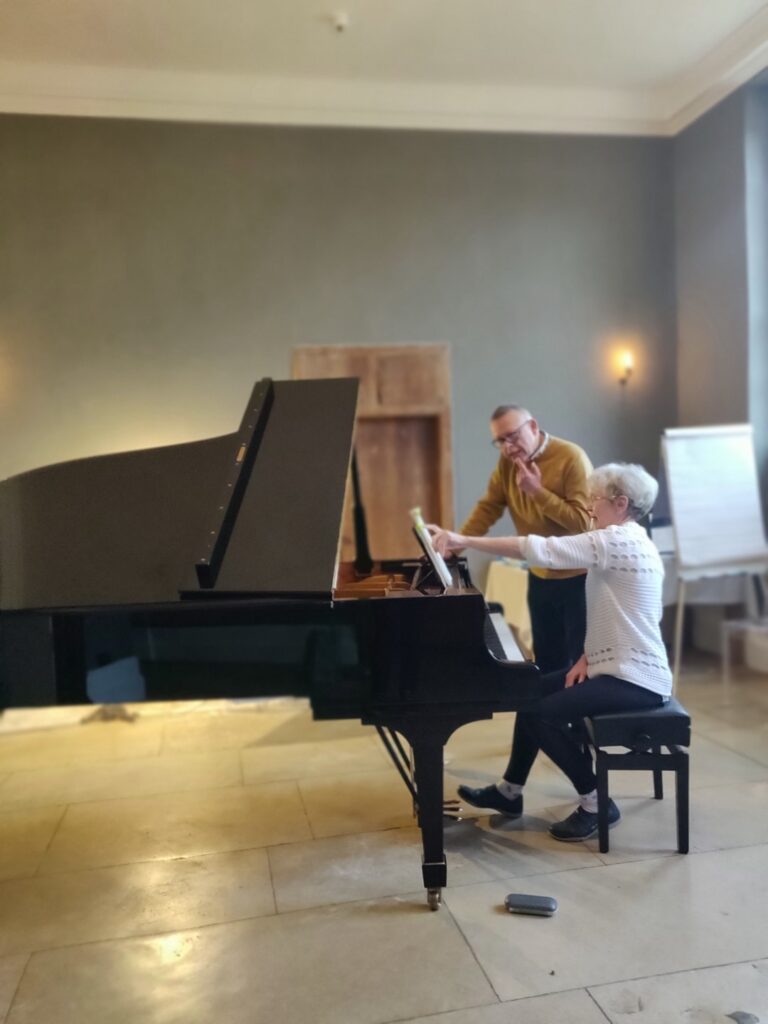Guest blog by Finchcocks guest Sheenah Lintott
I’m lucky enough to be able to attend quite a number of piano courses and Performance Anxiety is a frequently discussed topic. I’m glad.
For years, I’ve experienced symptoms of anxiety before – and whilst – playing the piano in front of other people. And been determined to discover a method of dealing with them that works for me. I’m grateful for this opportunity to share with you the approach I’ve taken.
I took Trinity’s ATCL in Performance in February 2023 and was very pleasantly surprised to find myself really looking forward to it. How lucky was I; to be able to be sharing the music that I loved, to the very best of my ability, with someone who was looking forward to hearing it and who would be wishing me well.
Such lovely positive thoughts. A far cry from the kind of pre-performance thinking that leads me to experience many symptoms associated with anxiety: a racing heart, violently trembling limbs, tension throughout the body and inability to stay fully focused on the present moment.
What led to this rather remarkable change? Without doubt, these factors…
First and foremost: Quality teaching from kind, caring, supportive and encouraging teachers: one on a regular basis and others on courses at Finchcocks and elsewhere.
Secondly: Discovering how to learn a piece really well – the “Deep learning” method. Using it enabled me to develop a degree of confidence in knowing my pieces well enough to be able to go into the exam room believing that even if my performance that day was not be flawless, it would still be good enough to earn a pass mark.
Thirdly: Giving performances in front of empathic audiences in the run up to my exam. This enabled me to gain comfort from knowing that they understood the challenges I wanted to overcome and were on my side. And to learn how to stay focused on performing.
Fourthly: Doing a Mock Exam. I had the opportunity to do this at Finchcocks on one of their Performance Evaluation Days. In addition to enabling me to know what to expect on the actual day, it boosted my confidence; even though I gave a performance that was not as good as I would have liked it to be, my Examiner decided that it was still good enough to merit a pass.
And finally: Mental preparation. I tried hard not to let my desire to do well dominate my thinking. Such thinking always puts me under pressure; it fuels anxiety. Instead, I encouraged myself to think about my exam as yet another wonderful opportunity to share the music that I love to the best of my ability, after having prepared it to the best of my ability. And to wish for nothing more than an enjoyable experience.
I’ve enjoyed writing this article and, in closing, wish to express my gratitude to the many people – including fellow students – whose sharing of experiences about Performance Anxiety has enabled me to discover a method of managing my own.
And thank you Finchcocks for giving me this opportunity to share my story!

